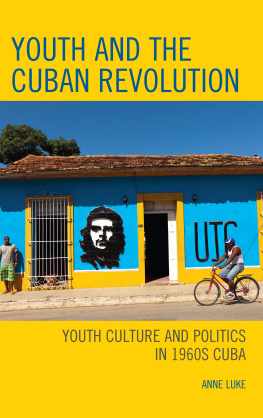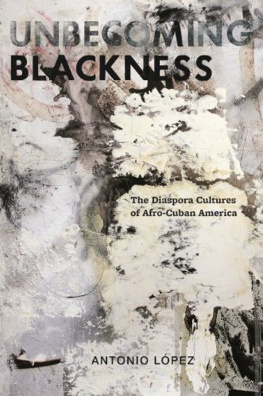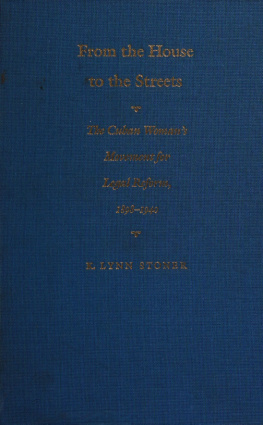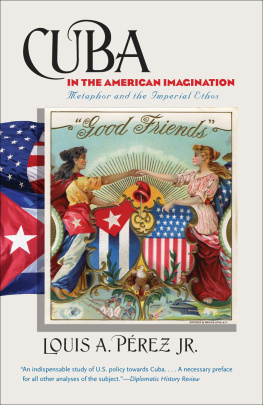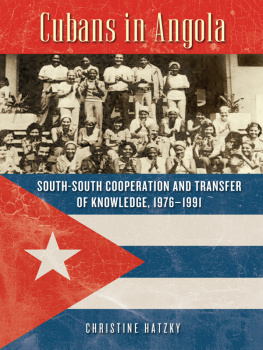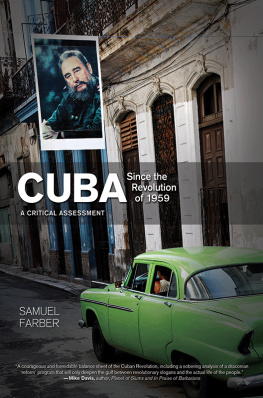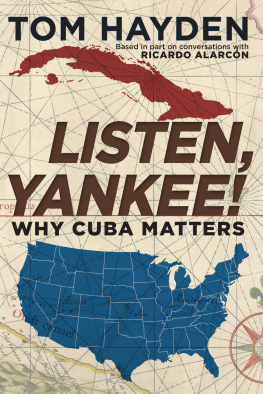THE NORTH-SOUTH CENTER promotes, through cultural and technical exchange, better relations among the United States, Canada, and the nations of Latin America and the Caribbean. The Center provides a disciplined, intellectual focus for improved relations, commerce, and understanding between North America and Latin America. The Center conducts programs of education, training, cooperative study, public outreach, and research and engages in an active program of publication and dissemination of information on the Americas. The North-South Center fosters linkages among academic and research institutions throughout the Americas and acts as an agent of change in the region.
First published 1992 by the University of Miami North-South Center
Published 2017 by Routledge
2 Park Square, Milton Park, Abingdon, Oxon OX14 4RN
711 Third Avenue, New York, NY 10017, USA
Routledge is an imprint of the Taylor &Francis Group, an informa business
Copyright 1992 by the University of Miami
All rights reserved. No part of this book may be reprinted or reproduced or utilised in any form or by any electronic, mechanical, or other means, now known or hereafter invented, including photocopying and recording, or in any information storage or retrieval system, without permission in writing from the publishers.
Notice:
Product or corporate names may be trademarks or registered trademarks, and are used only for identification and explanation without intent to infringe.
ISBN 13: 978-0-935501-49-0 (pbk)
Fidel Castros domination of Cuba since 1959, his cruel record in human rights, his aid to leftist governments and revolutionary movements in the Third World, the migration of thousands of Cuban citizens to mainland U.S.A., and the impact they have made upon the states, politically, economically, and socially, have contributed to a North American policy that strongly opposes relations with Castro and Cuba.
In the face of the dramatic developments in Eastern Europe and the glasnost policy of Soviet Union President Mikhail Gorbachev, one would like to assume that after a period of further economic stagnation hastened by cutbacks in Soviet subsidies and a reappraisal of trade arrangements with his Marxist partners in the Eastern bloc and Castros desire to rejoin the Organization of American States, he might, despite his public utterances and actions to the contrary, slowly relinquish his strong support of Marxist principles and begin to ease up on his rigid stance vis--vis his domestic scene and relations with the United States. The question might arise then, what should our reaction and policy be if the change were to occur? While no public discussion on this possibility is on the horizon, undoubtedly within government and academic circles, reviews are under way, and options surely are being contemplated. For example, there must have been some consideration given to this possibility at the recent international conference of scholars concerned with Cuba held in Halifax, Nova Scotia the first week of November 1989 as well among the hundreds of Latin American experts attending the Conference of the Latin American Studies Association held in Miami during the first week of December 1989, and locally, during July 1991, Governor Lawton Chiles revived a Commission investigating the impact on Florida of an end to Castros reign in Cuba.
For scholars and officials, it would be desirable and helpful to widen their knowledge of all aspects of Cuban life over and above the political which has dominated our policy, actions, books, periodicals, and press. It also would be helpful for the general public and for second- and third-generation Cuban Americans to learn more about that nations art, anthropology, economy, education, history, music, dance, cinema, literature, other areas of Cuban life and culture that are not too well-known, and what has been researched about Cuban Americans here in the United States.
This void in our knowledge of Cuba can be rectified by calling attention to a rich source of information in doctoral dissertations, almost all of which has not been published. Although some dissertations find their way into public print as books, primarily with the aid of university presses, too many of them are only recorded partially as articles in periodicals or are inconspicuously shelved in university libraries. Two reasons for this situation are the high cost of publishing scholarly works with prospects of limited sales and that generally little attention is given to them other than through a listing such as this.
This classified bibliography of 900 dissertations accepted by North American, British, and Canadian universities is valuable for many other reasons. Scholars, specialists, and policy makers in various governmental agencies may learn of the availability of data heretofore unknown to them. Professors can take advantage of additional data to enrich lectures and, in their capacity as doctoral advisers, may find the list helpful in discussing the selection of research problems with doctoral candidates.
Unnecessary duplication will be avoided. Examination of the overall list will reveal where too much, and too little, research has been done. With the passing of years, earlier studies can be re-examined, added to, or the findings challenged with the presentation of new data.
The first doctoral dissertation dealing with Cuba, The Relations of the United States and Cuba to 1830, was accepted at Harvard University in 1902, written by Francis Samuel Philbrick. In 1905, Hubert Aimes wrote A History of Slavery in Cuba, 1511 to 1868. Since then another 892 dissertations have been accepted by 123 North American universities, 11 universities in great Britain, and eight universities in Canada. Incidentally, during the process of gathering the data for this list, the author came across six dissertations from the National University of Mexico (1982), the University of Havana (1949), the University of Paris (1905, 1934), Montpelier (1906), and Geneva (1989). These have been included on the grounds that they may be useful to future researchers.
Prior to I960, only 94 dissertations were accepted, with almost half that number being produced in the fifties alone. The vast bulk accepted in the 30 odd years since then reflects the growth in doctoral research as well as the great interest in Cuba, Cubans, and Cuban Americans.
New York University leads in output with Columbia and the University of Florida at very close seconds. The Universities of Texas, California at Berkeley, Miami, Yale, Harvard, and Florida State rank as the next large group of producers of Cuban studies. Half of the total number of universities listed produced three or less dissertations each: 30 produced only one, 16 produced only two, and 13 produced only three. Of the 16 dissertations credited to the 11 universities from Great Britain, London (7) and Oxford (7) produced more than half. The eight Canadian universities produced a total of eleven dissertations only, 10 of which were accepted in the seventies and eighties, dealing for the most part with political matters.
The great bulk of doctoral dissertations on Cuba was produced in literature (over 300) and proved to be a rich descriptive source of Cuban literature in general, with its history, folklore, and studies in profusion of three score individual writers and poets, down to two studies of literature of Cubans in exile. The history of Cuba is covered on a large scale with over 120 titles, classified by era, with only 11 studies examining different phases of Cuban history after 1959. This is compensated, however, with a total of 173 titles dealing with politics, the military, diplomacy, and foreign relations, almost all of which were written after 1959, with a major emphasis on U.S.-Cuban relations.





